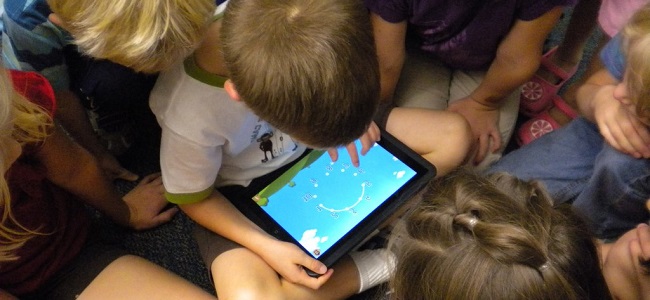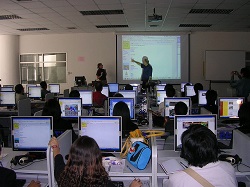As shown in articles by the likes of Kriscia Cabral, classroom design and layout play a big part in a pupil’s learning. Melanie Laing of Innova Design Solutions gives her top ten tips on how best to innovate the classroom.

The decision to improve and modernise classrooms offers teachers the opportunity to create a space which truly meets their needs and those of their students. But where do you start? And how can you ensure the changes you make have a real impact on staff and students?
When a teacher has so much on their plate, it can be easy to get tunnel vision. It’s important to be aware of the best teaching and learning options out there; here, London-based blogger Helen Willis takes a look at how teachers can help pupils truly soar.

It’s fairly common for old-school educators and administrators to unplug the Internet and shun new technology. Some still see tablets, laptops and remote Internet access as a distraction that should be fought; they believe that there’s no replacement for books, pens and pads. However, these learning institutions have, quite simply, got it wrong.
My name is Ira Cross, Jr. and I am an elementary school teacher in Columbus, Ohio in the U.S. I am ecstatic to have recently finished my first year of teaching! I am very humbled and excited to have the opportunity to write this article, and have been told I have this fiery energy about me that fits teaching so perfectly, and it is rewarding when my excitement is noticed. I am always looking for, and thinking of, ways to show my passion and enthusiasm. One way that I love to share this energy with my students is by hosting game shows and other activities to review information taught and discussed.
Most modern professionals have a Twitter account. The social network can offer belly laughs out-of-nowhere, factoids that can raise a smile or an eyebrow (see Andy Nyman’s account for excellent facts-of-the-day) and often real insight. Indeed, Twitter can be a superb place for getting output from superb innovators of education…

Here are thirty education specialists, mostly recommended by followers of Innovate My School. This isn’t meant to be seen as a conclusive / top list, or a ‘best of'; these are just 30 people from whom you can gather wonderfully innovative ideas.
[Given the huge amount of suggestions from our followers, this article will be the first of several. Please do keep suggestions coming, British or not!]
There are amazing innovations being implemented into schools daily, but what are the downsides of this? As with Elliot Simmonds' piece on Friday, Shiny Things director Mat Peterson has some concerns about the expansion of edtech - namely, the lack of physical actions that these modernisations require.

While the use of devices in one-to-one classrooms is hugely beneficial to education, the potential impacts of abandoning handwriting in favour of keyboards have largely been overlooked. Early formative years are essential for sensorimotor development and a complete shift to computer-based teaching could be detrimental to a child’s learning.
New research from the Stanford University School of Medicine shows that areas of the human brain do become specialised for the specific recognition of numerals. Meanwhile, several studies have shown that the human brain's specialised ability to recognise letters and numbers is strengthened by sensorimotor experiences with those characters, specifically through handwriting practice.

A community-driven platform for showcasing the latest innovations and voices in schools
Pioneer House
North Road
Ellesmere Port
CH65 1AD
United Kingdom